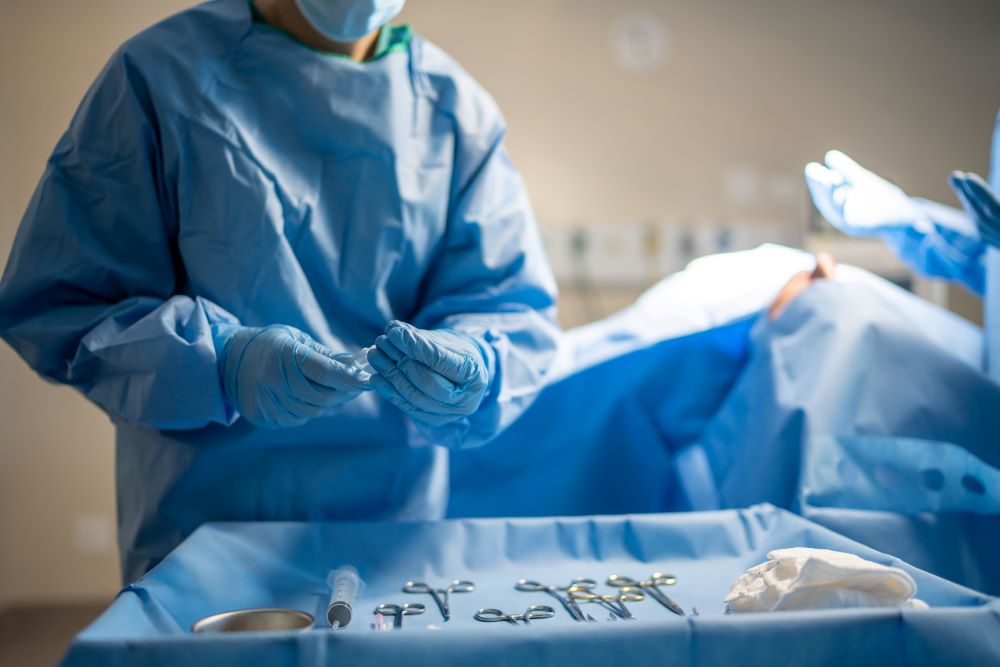
Every March, we wear blue to celebrate Colorectal Cancer Awareness Month. The incidence of colorectal cancer is rising in younger people, and the importance of early screening colonoscopy and attention to warning symptoms cannot be overstated. For those patients who are newly diagnosed, standard treatment options for those with early or middle-stage disease often include a combination of surgery to remove the colon and/or rectum, as well as chemotherapy when needed. Patients with advanced, late-stage disease where the cancer has spread to distant organs are often treated with medical therapy only. As we raise awareness of this common cancer, it is paramount to keep in mind that surgical excision of deposits where colorectal cancer has spread may be an option for otherwise healthy patients with limited disease.
Decades of studies have demonstrated that liver surgery can help patients with stage 4 colorectal cancer and liver metastases live longer compared to medical treatments alone. When considering liver surgery, multiple factors are important. First, the patient must be well enough to tolerate major surgery. Second, the pace of the disease must be favorable to allow a pause in medical therapy for the perioperative recovery process, and there should be little to no tumor outside the liver. Third, the liver that remains after surgery must be large enough and healthy enough to support the patient’s metabolic needs. Hepatobiliary surgeons will carefully evaluate imaging to ensure that the remaining liver will have adequate blood flow and can function properly.
Other patients with stage 4 colorectal cancer have tumor deposits along the lining of their abdomen or on surfaces of the other abdominal organs, known as peritoneal metastases. Some studies suggest that patients with limited peritoneal disease may benefit from surgical removal of all visible disease and perfusion of their abdomen and pelvis with chemotherapy. This is called cytoreductive surgery, or tumor debulking, and hyperthermic intraperitoneal chemotherapy (HIPEC). Candidates for this kind of surgery must also be healthy and have a slow disease pace controlled on medical therapy. Surgical oncologists will evaluate the imaging and operative findings to determine the extent of disease and ensure that all visible disease can be removed in order to proceed.
Evaluation for surgery in the stage 4 setting is ideally performed by surgeons trained in complex general surgical oncology and hepatobiliary surgery. Some patients may be candidates for minimally invasive, robotic or laparoscopic surgery. Others may not be a candidate for surgery but may be able to have other treatment options such as liver-directed therapy, radiation or tailored medical therapy. At Northside Hospital Cancer Institute, our team works closely with a group of physicians, including medical and radiation oncologists and interventional gastroenterologists and radiologists, as well as oncology dietitians, body imaging radiologists, pathologists, genetic counselors and patient navigators, to help come up with a comprehensive treatment plan that is based on scientific evidence but also tailored to the individual patient.
Learn more about colorectal cancer care at Northside Hospital Cancer Institute.

